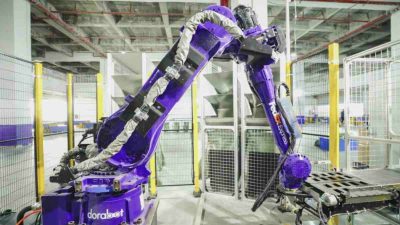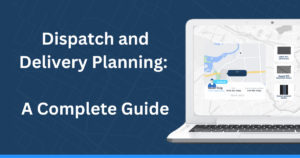Artificial intelligence (AI) is proficient in task automation and data analysis, but according to FedEx, it’s also a big deal when it comes to hard labor on the ground. It lifts the pressure off the courier company to scale up production on a massive scale.
FedEx posted new statistics on social media about how its robotic arm can sort up to 1,000 packages per hour. It can also carry up to 5kg of weight in one movement. Flexing its steel muscle helps the robot to cover up to 100 destinations simultaneously.
In September, FedEx also partnered with Dexterity to supply AI-powered robotic technology to help load boxes into trucks and trailers.
Dexterity says their robots generally have a real-time understanding of their environment and can start working within two days.
Celebrations and concerns
While FedEx continues to focus strongly on robotics and AI, its transparency has also been criticized.
The post on LinkedIn raised renewed interest in what results this technology can deliver and resurfaced concerns about job security.
Tia Jensen, a FedEx employee, weighed in: “On the one hand, I am always for technological progress and what it can bring. On the other hand, I am not that big of a fan if it means people will lose their jobs.”
Others posted concerns over job security and hailed it as innovation at its best.
Expanding e-commerce service
The courier company has recently focused much of its attention on entrepreneurs and improving the customer experience.
Last week, it announced the launch of its digital platform called fdx. The new digital platform aims to “connect the entire customer journey.”
It’s a serious promise, but if it lives up to its expectations, it can help increase companies’ sales, level up conversion rates, and optimize fulfillment. It also has the potential to make the return logistics headaches disappear by streamlining this tedious process.
Going digital with fdx
Let’s face it: FedEx has the experience to support customers throughout the journey, judging by its knowledge of handling 15 million packages daily.
By using its “long-standing relationships with merchants of all sizes,” FedEx expects this will help it optimize and grow businesses.
This service will allow merchants to access data and insight into how to adjust their business strategy. It can be an incomparable opportunity for small businesses still determining what direction to take when the sales are not improving as expected.
Unfortunately, it’s still a few months before the platform’s launch. It will only be launched in the fall of 2024 (September).
NOW READ: FedEx launches data-driven platform
About the author
Mia is a multi-award-winning journalist. She has more than 14 years of experience in mainstream media. She's covered many historic moments that happened in Africa and internationally. She has a strong focus on human interest stories, to bring her readers and viewers closer to the topics at hand.












